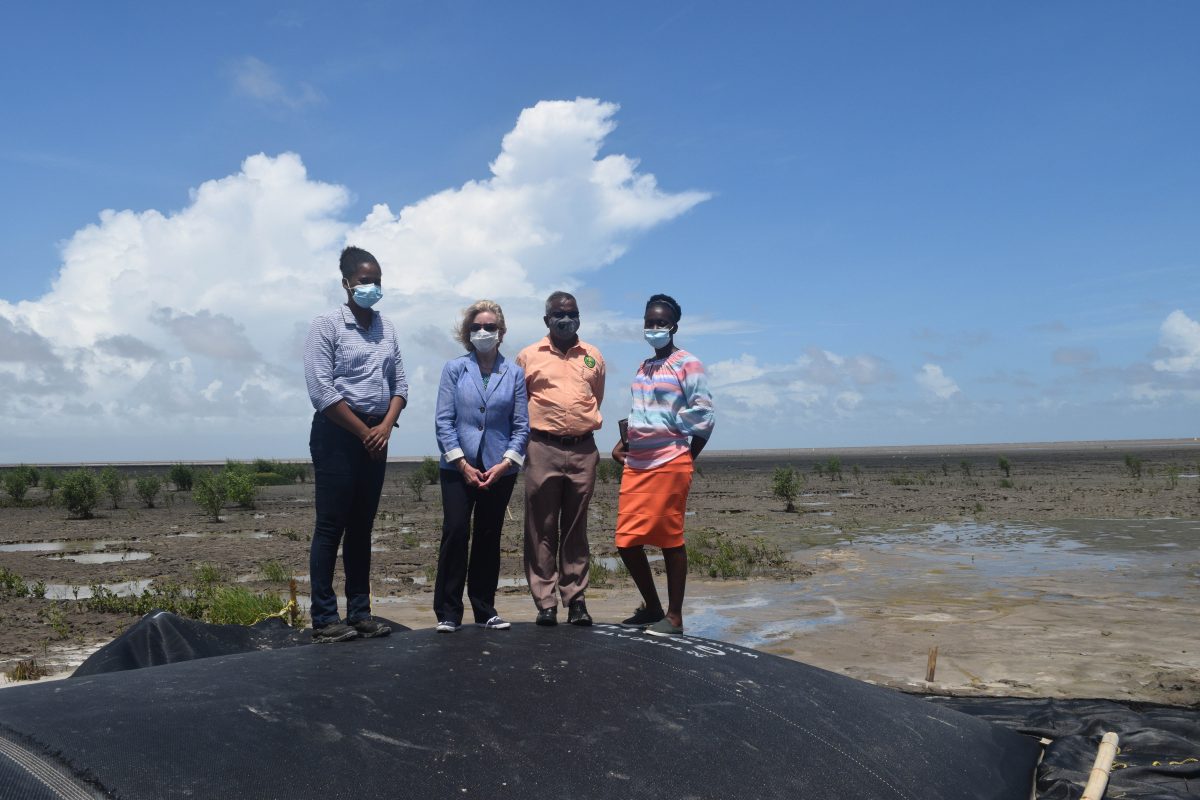In the lead up to the UN Climate Change Conference (COP26) and with 2021 marking the start of the United Nations Decade of Ecosystem Restoration, US Ambassador Sarah-Ann Lynch visited the Guyana Mangrove Restoration Project, a programme under the National Agricultural Research and Extension Institute.
A release yesterday from the US Embassy said that she met with Jagnarine Singh, CEO of NAREI, Kene Mosely, Coordinator of the Mangrove Restoration Project, and Damien Fernandes, Executive Director of Conservation International, who described their coastal adaptation strategies using mangroves in combination with infrastructure as a nature-based climate mitigation strategy.
The release said that Lynch praised the programme for raising awareness about the role that mangroves play in disaster management, carbon absorption, and protection of coastlines.
“Climate change is already impacting the planet in unprecedented ways, causing weather and climate events to increase in severity and frequency. Guyana has seen devastating floods this year that have impacted livelihoods. Preserving mangroves helps protect Guyana’s coastline”, she was quoted as saying.
At COP26, the release said that the United States will launch a range of new initiatives and partnerships with other countries and stakeholders to mobilize concrete action in key areas related to both adaptation and mitigation, including methane, clean energy, forests, and industrial decarbonization.
The release added that the United States has put forward a nationally determined contribution (NDC) that aligns with keeping to a 1.5-degree Celsius limit within reach, namely to achieve an economy-wide target of reducing its emissions by 50 to 52 percent below 2005 levels in 2030.






